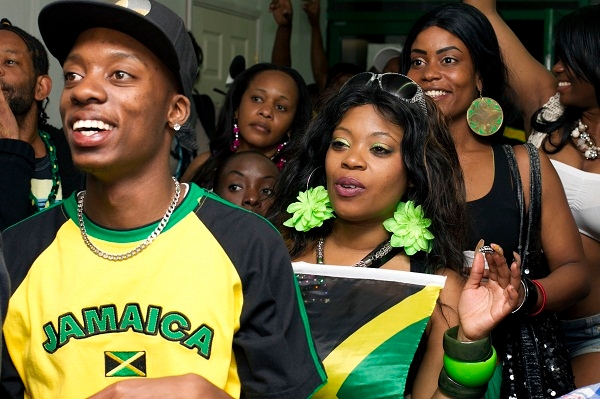The Jamaican High Commission in London held a party last night to launch a patois translation of the Gospels. The translation, published by the Bible Society, is the culmination of 20 years work by academics at the University of the West Indies and other institutions, studying the rules of the creole created by plantation slaves and committing them fully to paper for the first time.
The project has been part-funded by donations from congregations whose primary (and often only) language is patois rather than English, the language in which scripture has always been written and read in the nominally English-speaking Caribbean. This is an important cultural moment. It is an act of religious emancipation that will enable believers to understand and contemplate the Word of God for themselves in the same way that Wycliffe and Tyndale did for English worshippers during the prelude to the Reformation by translating the Bible. Indeed, reports of Jamaican congregations reacting to the gospel in their own language are similar to historical accounts of the fervour that met the illicit work of those early reformers. “It’s almost as if you are seeing it,” said a devout Jamaican woman for the first time. There is no telling what this simple change might do to organised religion in Jamaican communities.
Most scholars of the Reformation will tell you that politics was inseparable from religion, arguing to varying degrees that the translation and official adoption of religious texts was vital to the creation of modern English and the concurrent transformation of the medieval kingdom of England into the nation state of Great Britain. Analogous claims are being made of the patois Bible and the development of an independent Jamaica, which is celebrating its 50th birthday this year. The Reverend Joel Edwards appeared on Thought for the Day earlier this morning and said that a free nation must have its own language: a statement typical of those who support the project and wish to de-stigmatise patois.
There is no doubt that patois is an important part of Jamaican heritage – a symbol of the slaves’ suffering and endurance, and an expression of their refusal to adopt every fashion of their oppressors. Yet that very heritage ensures that patois is insular and therefore markedly less prevalent than standardised varieties of English, the so-called global language. Numerous community leaders in Jamaica and among its diaspora condemn the use of patois on the grounds that its speakers are excluding themselves from participating in the wider world. These criticisms accompany deep concerns on both sides of the Atlantic about Afro-Caribbean males’ poor results in English exams.
The devil here is the constant evil of poverty as much as it is the legacy of racial oppression, because, cultural heritage aside, the survival of patois appears to be a symptom of poor quality of life and education, serving to alienate the minority affected and foster resentment. As Faith Linton, an 80 year old linguist who worked on the patois translation, put it to the BBC last year:
‘The damage is deeply psychological. The patois-speaker feels inferior, full stop. Because the model is the white English man, his language and educational standards… and we have not been able to attain it. Out of this sense of inferiority will come violence, illiteracy, disturbed behaviour and damaged emotional attitudes. All those spring from the idea that my identity is inferior.’
Therefore, one aim of the translation is to banish that sense of inferiority by formalising the creole, making its speakers understand their language’s rules of grammar and tense. This intensification of literacy, it is argued, will assist Jamaicans to master the complicated rules of English more readily. This ambition to make the Word more than flesh is admirable.






Comments